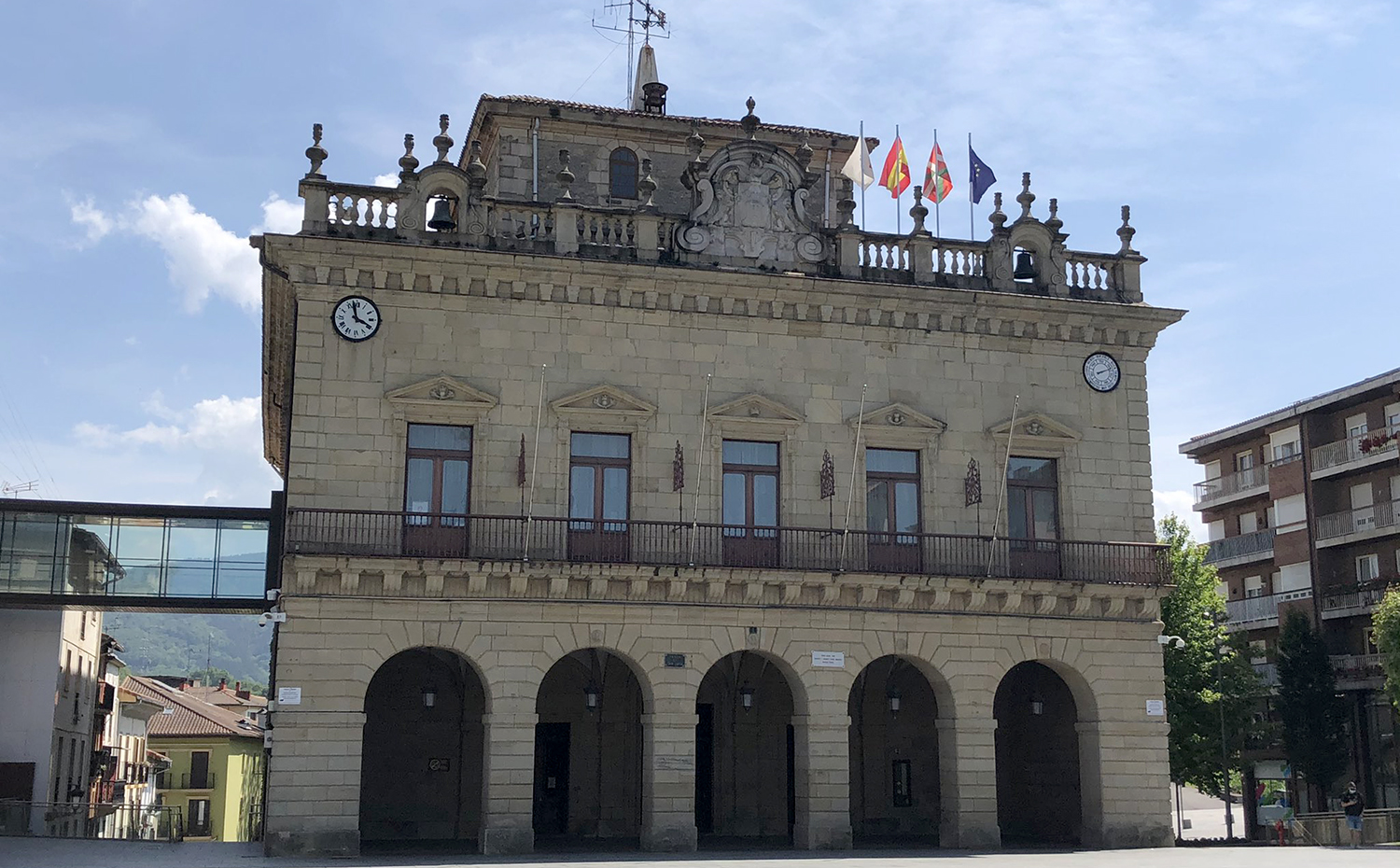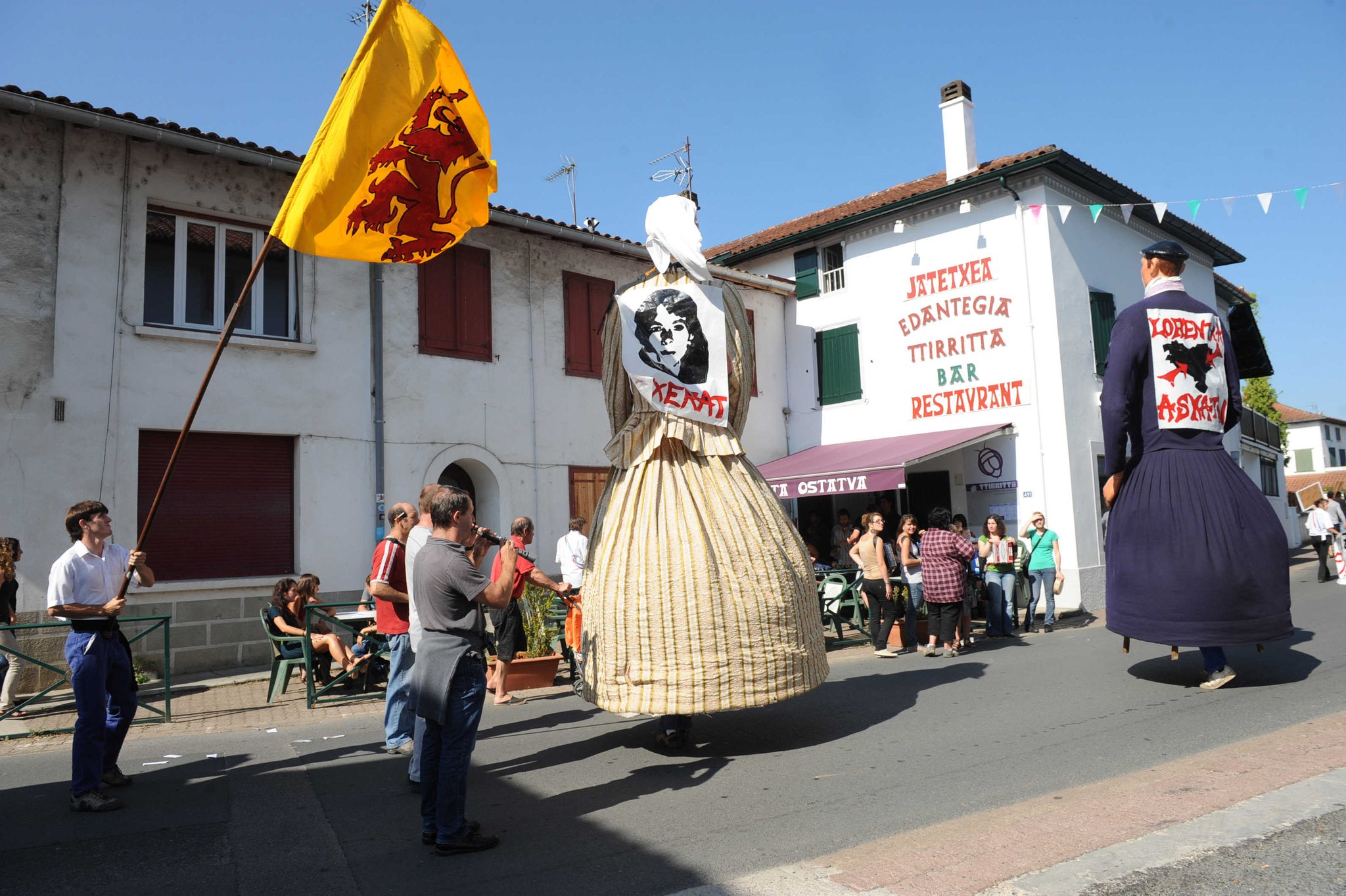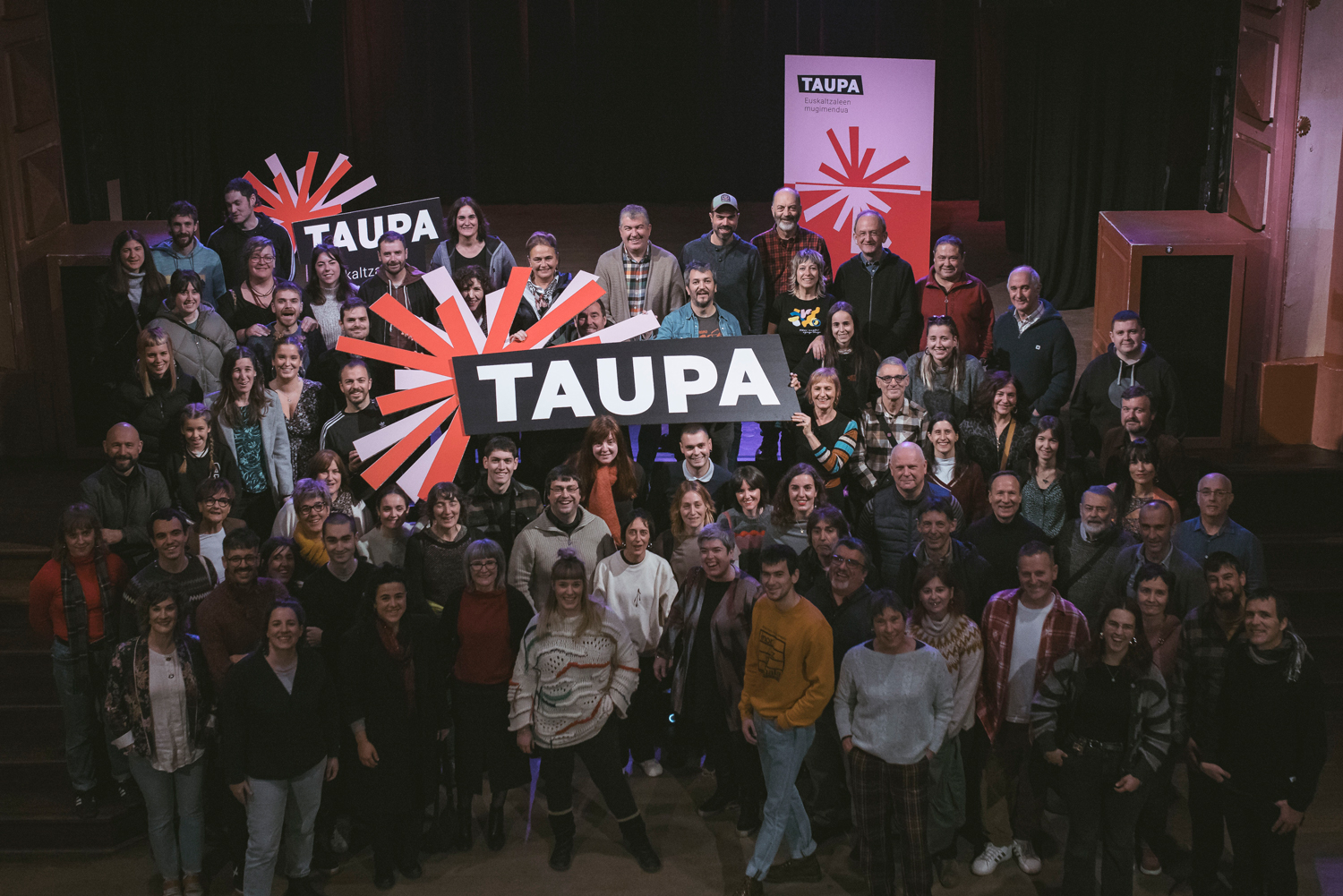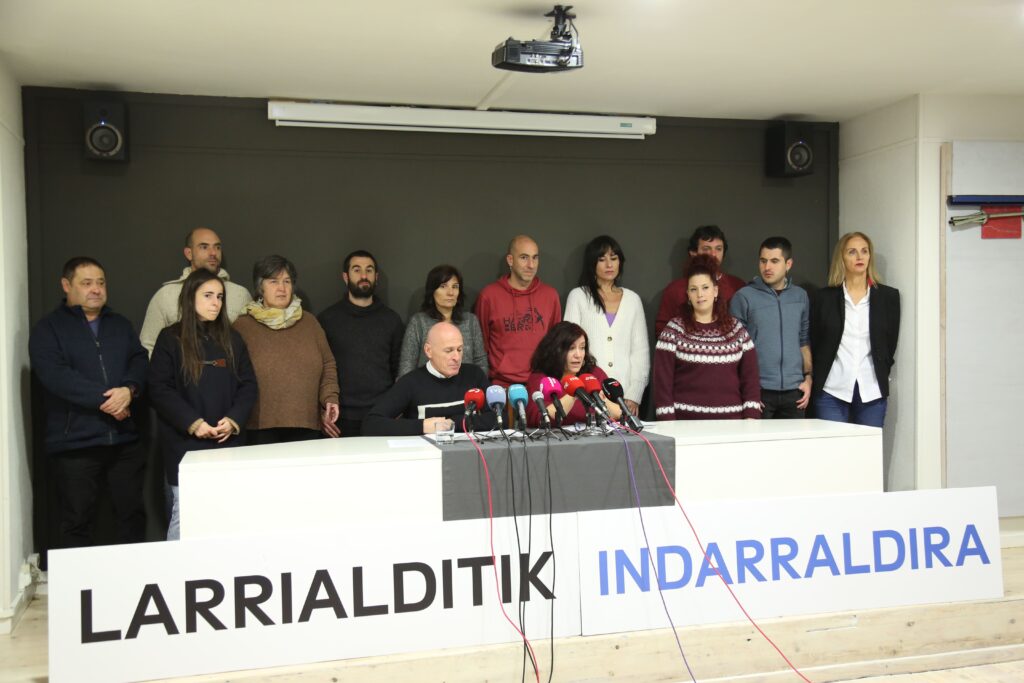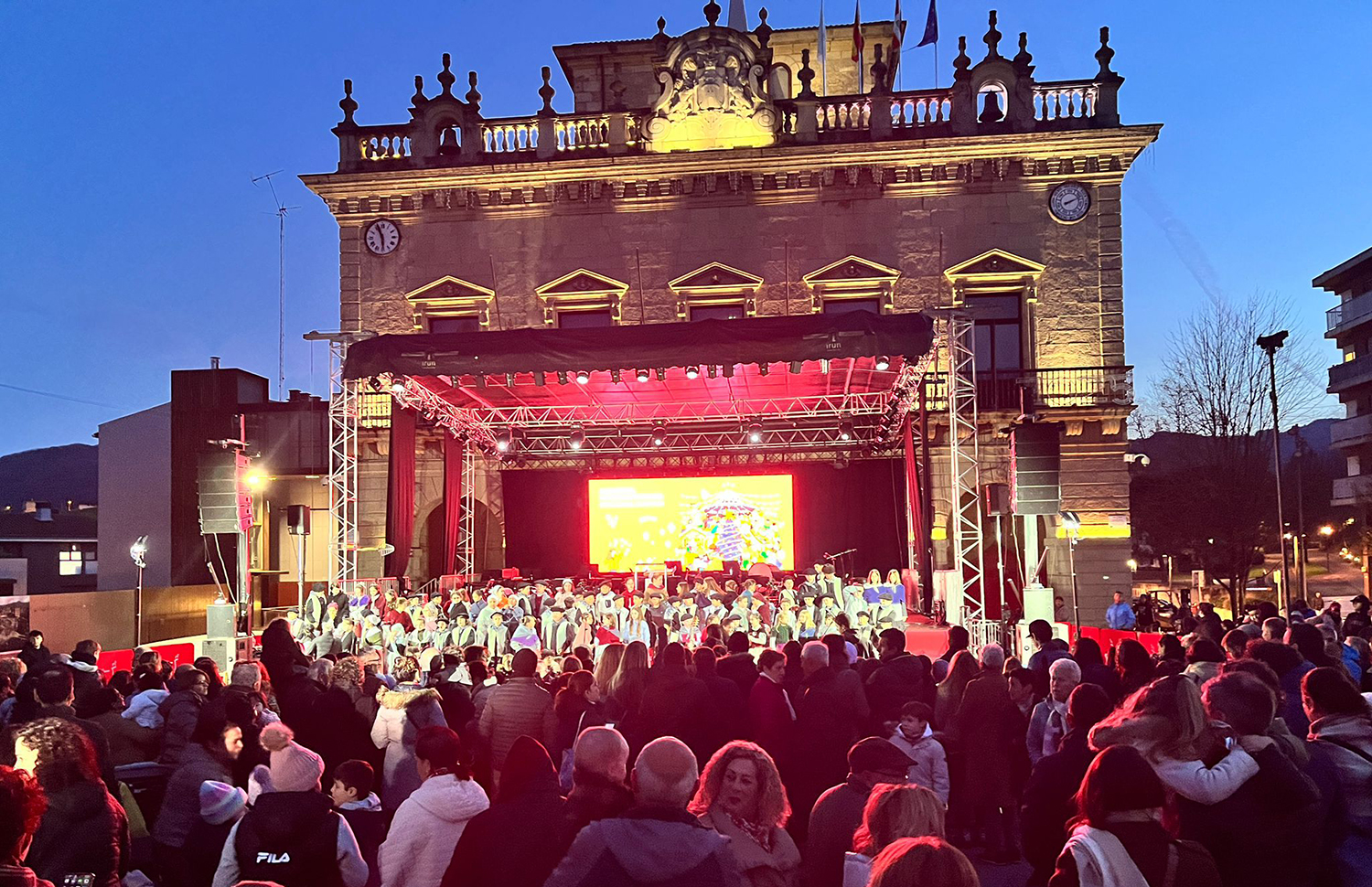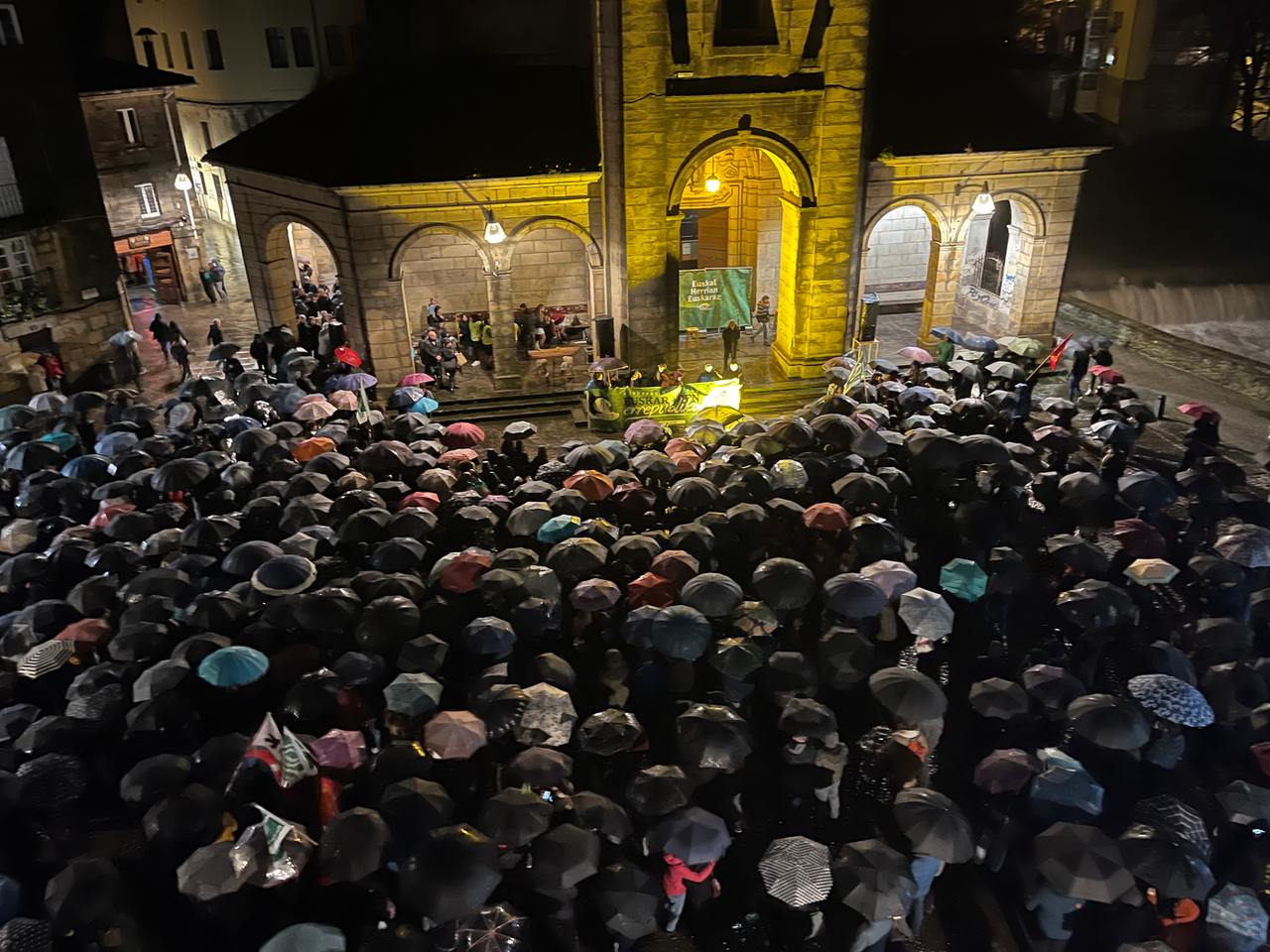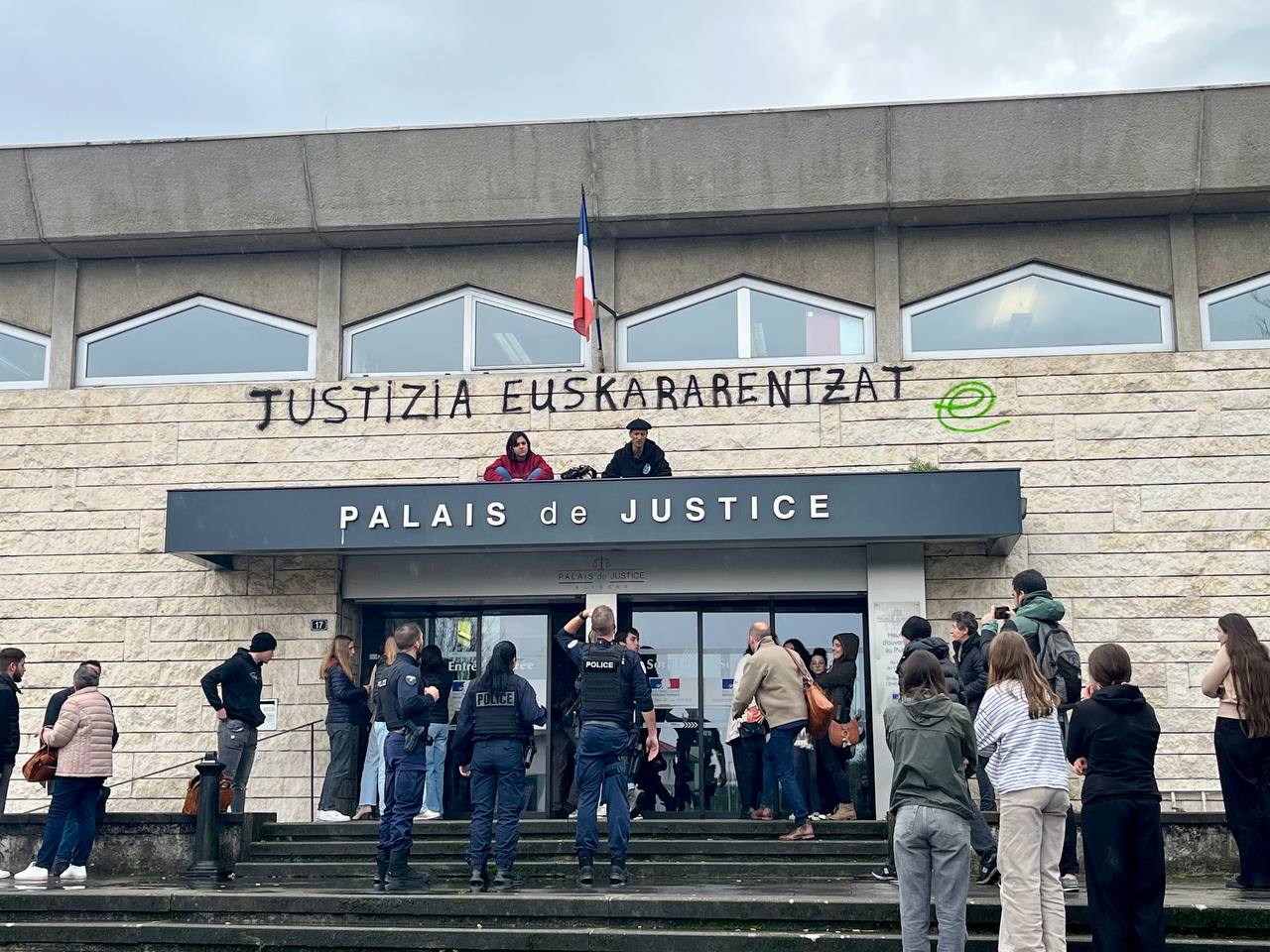"Associations put the use of Euskera at the centre"
- Ever since Derio founded the Basque association Tximitx, Txerra Rodriguez has been immersed in the world of sociolinguistics. Now, 30 years in the language industry. The influence of the Basque associations in the revitalization of the Basque Country has been the publication of the book 1987-2017: a work to publicize the achievements and failures of the Basque movement over three decades.

What was the point of departure or where was the need to carry out this work?
Almost 20 years ago, we met young people with the dream of making an Euskera association in Derio. Then, when we made it a reality, we did a role sharing; it was up to me to dress up the newly created association in sociolinguistic issues and in those cases, or at least to start forming in it. At that time a process began, and since then I have continued to militate for many years in the Basque associations, so I wanted to make an in-depth analysis of it. Above all, because it seemed to me that this phenomenon has been investigated very little and I wanted to make my contribution to it.
How has the work process been for this?
I've been doing the thesis for four years; at first, the goals I set were very ambitious, but then I had to go down, mainly because of the lack of research on this topic. In fact, there wasn't the material needed to get to the depth level that I wanted. However, I did 26 interviews with people from 26 associations and, in addition, 16 other experts or experts gave me answers. In addition, all that is written about the associations of the Basque Country, or what has fallen into my hands, has been the mass or the mass to make the thesis.
Have you considered all the territories of the Basque Country to conduct these interviews?
Except in Lapurdi and Zuberoa, I have met with the Basque associations of the rest of the territories of the Basque Country to conduct studies and interviews for the thesis.
From 1987 to 2017, wasn't there a Basque association before?
The first association was founded in 1983, but it is true that in 1987 Txepetxe published his book A Future for Our Past and, in one way or another, began to create associations in favor of the Basque in different towns. That's why I decided to make that year a milestone, because somehow that's where really starts what you can call the Euskera Association Movement. On the other hand, since I started the thesis in 2016, I've taken 2017 to finish, because I had to put that final milestone somewhere. In addition, the first Euskaraldia was organised in 2018, and I think that is a fact that can be included in the Euskera Association Movement; I would say it has been a turning point. At that time I had the impression that, while I was doing an investigation, I would only exaggerate the situation a little. In addition, the 30 years make a round number, and that also influenced, of course.
Why do you say that there was a turning point in the first Euskaraldia?
Until then, the Basque Association Movement was looking at itself, of course. In 2018, however, a step forward was taken and the movement made an effort to cover the entire Basque Country. This materialized in Euskaraldia, and in this sense, it seemed to me that I had already marked the time to enter another phase: both in terms of social activation and in terms of the incidence in the whole of Euskal Herria.
In the study you have conducted, you state that you have investigated associations with different vertices; in what aspects have you relied on to conduct your research?
I have tried to build on universality and, in general, to look at the things that could be investigated. After all, the Basque associations have been and continue to be local phenomena. However, in the research I have carried out, I have tried to take a general look at what associations of the Basque Country have done, although some of the things that appear in the book or in the study have not been done in all the peoples. I wanted to give a global look at the work, but from the local movements.
Would you say that each association was born conditioned by its own reality?
Yes, of course. All the associations of the Basque Country have always been linked to the people, and they are still linked. That is why they have also taken advantage of the reality of that people that have emerged and of the correlation of forces within them, and have been able to do everything they have done. In this regard, the contributions of each association are very large, but the aim of the work is not to reflect what has been achieved in each people, but to analyse, as far as possible, the movement of all in general.
He has also studied the creative process, where did the need to make those associations come from?
I would say that in the 1980s the situation of the Basque Country was in a moment of confrontation, and the associations of the Basque Country tried to get away from this environment as far as possible. They sought another plurality, both in the formations and in the different modes of operation. In this sense, they tried to reflect their diversity and later, on the other hand, they recovered the functions for the Basque Country. The process, for example, saw the need for local media, and resorted to its creation; it also saw the need to euskaldunize free time and for this purpose Euskaldunes groups were created, among many others.
In your work you say that at first they had several objectives, but they did not all meet them. In any case, what has been achieved is there and it is worthy of praise, right?
Yes, no doubt. I believe that in this process of creation there were some great dreams, and it is true that over the years they have not achieved all these projects. They would have been needed in their day and they are still important; after all, I believe that having dreams is not bad. Then, it is true that reality puts everyone in place, and it is also true that the Basque associations have achieved great achievements. But what I have noticed in those interviews is that the feeling that has remained is not very positive, that it has its negative tint, precisely. In any case, in almost all the interviews I have made, I have thought about the situation in which we would be if no association of Euskera had been created. That is why, in this sense, I would say that the associations of the Basque Country have done some things in favour of the Basque Country, and that these things are worthy of note.
Which of the contributions of the Basque Movement would stand out?
On the one hand, I would say that it was the associations of the Basque Country, perhaps not the first ones, but the ones that put the most strength on them, the ones that supported the use of language the most. I would say that today, all the movements for the Basque people and the administration, in one way or another, have embraced it. In short, the use of Euskera is now one of the main health factors. Moreover, they did not limit themselves to settling in the center in the discourse of use, but were committed and still committed to putting in place mechanisms to promote this use, some with more success and others with less. But it was those paths that built, and those are, in my opinion, the main contributions of the Basque associations: putting the use in the center and creating mechanisms to encourage the use.
In our region we have the associations Uribe Kosta, Berbots, Bizarra Lepoan and Egizu, how has the trajectory of these associations been?
I have done a general study, but I think they are associations that I know quite well. I would say that they are very different from each other, and that the only equality is the Basque associations. The tours of Berbots in Erandio and Bizarra Lepoan and Egizu in Getxo have been very different, conditioned by the characteristics of each town. It is true that the first two are among the oldest in Bizkaia, but they have had a very different development over the years. In the case of Berbots, for example, I would say that the journey has been very irregular, unlike what happens in Getxo. The associations have had an almost professional structure, while Erandio’s structure has been very militant from the beginning. In this sense, it clearly indicates the two main types of associations that have existed in the region and in the Basque Country. Some have been very professionalized and others, on the contrary: they worked mostly thanks to militancy. This has had its pros and cons, and it seems to me to indicate very well the irregular nature of the phenomenon, after all, because they are local phenomena.
Do you think Getxo's have been a benchmark for some associations?
The gaps in this research look very clear, because when I started working with it, I wanted to do a deeper research. After all, if the results obtained by the association of a particular people had been analysed, there would be a more general perspective, but this has not been the case. So in order to get the depth, you'd also have to do that study. Basque associations have been very skilled in creating artifacts, and have had a very large flow, but have not realized the results of the work done. Very little work has been evaluated and not looked back to analyse the impact or results of what has been done. In general, it can be concluded that the Basque associations have also been weak and, through this, it is easier to draw the results of the work done. But that requires another job.
Hamahiru ZirHika kide batu dira hitanoaren erabilera aldarrikatzeko eta antolakundearen ekintzen berri emateko. Azalpenak Badihardugu elkarteko Idoia Etxeberria eta Galtzaundiko Uxoa Elustondok egin dituzte. Horiei, Andoni Egaña eta Amaia Agirre bertsolariak eta... [+]
Gabonetako argiak pizteko ekitaldia espainolez egin izanak, Irungo euskaldunak haserretzeaz harago, Aski Da! mugimendua abiatu zuen: herriko 40 elkarteren indarrak batuta, Irungo udal gobernuarekin bildu dira orain, alkatea eta Euskara zinegotzia tarteko, herriko eragileak... [+]
We Basques move our feet behind the witness of Korrika to proclaim that we want to survive as a Basque people in favor of our language, with the aim of the Basque Country we desire.
The tipi-tapa is the first step taken by a migrant person who leaves his homeland in Africa,... [+]
Euskaraldia comes back. Apparently, it will be in the spring of next year. They have already presented it and the truth is that it has surprised me; not Euskaraldia himself, but his motto: We'll do it by moving around.
The first time I have read or heard it, the title of the... [+]










